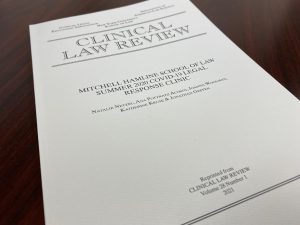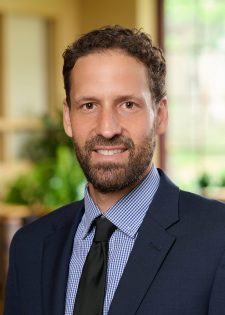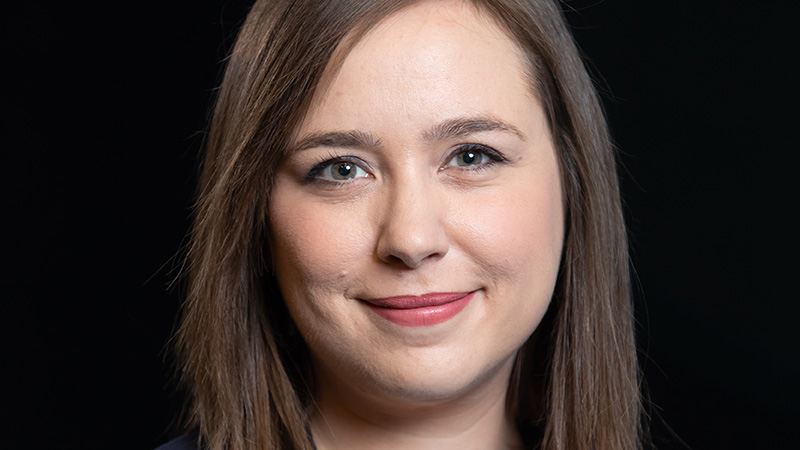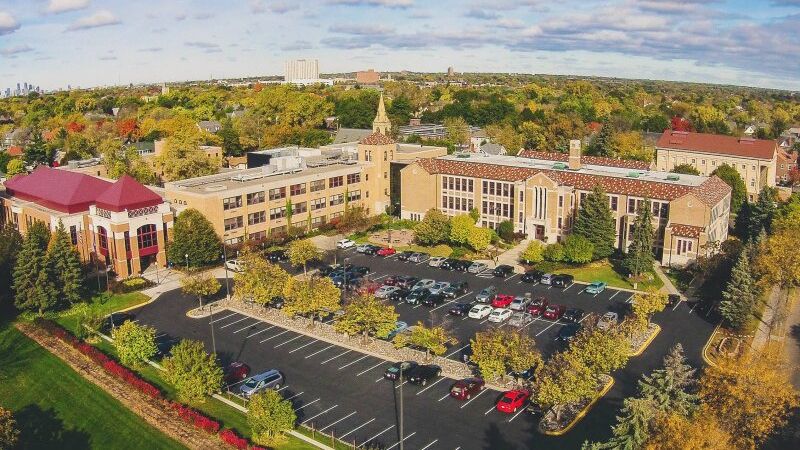 When the COVID-19 pandemic shut down business, schools, and much of regular life in the spring of 2020, several clinical faculty members at Mitchell Hamline were soon thinking about the collateral consequences of those shutdowns: Visitations in the child welfare system would be disrupted; undocumented immigrants and mixed-status families would need help accessing some of the federal relief approved by Congress; prison inmates with medical conditions would need help applying for conditional release to not be in close quarters with the virus spreading; and frontline healthcare workers might need help with emergency planning matters like power of attorney and healthcare directives, just in case.
When the COVID-19 pandemic shut down business, schools, and much of regular life in the spring of 2020, several clinical faculty members at Mitchell Hamline were soon thinking about the collateral consequences of those shutdowns: Visitations in the child welfare system would be disrupted; undocumented immigrants and mixed-status families would need help accessing some of the federal relief approved by Congress; prison inmates with medical conditions would need help applying for conditional release to not be in close quarters with the virus spreading; and frontline healthcare workers might need help with emergency planning matters like power of attorney and healthcare directives, just in case.
What quickly came together was a unique clinic with five instructors to enlist students to work with clients on these and other legal matters that emerged during the pandemic. There was only room for ten students, and the spots filled quickly.
Then, a week before class was to start, George Floyd was murdered by a police officer just a few miles from the law school. In racing to get the class together, faculty realized they also needed a moment to give students space to process that trauma.
The professors – Natalie Netzel, Ana Pottratz Acosta, Joanna Woolman, Katherine Kruse, and Jonathan Geffen – detailed their journey to creating the one-time clinic and their experience working with students, in a co-written article in the Clinical Law Review.
Because of the closeness of the class to both an emerging pandemic and the killing of George Floyd, the experience became more than just pairing students with clients to gain real world legal experience, a benchmark of how Mitchell Hamline prepares its students to be ready to be lawyers upon graduation.
The class was also a lesson – for both faculty and students – in trauma-informed lawyering and how to incorporate good mental health practices in legal practice. “In embarking on work advocating for those in crisis,” the authors wrote in the article, “we also knowingly put ourselves in the lives of others in moments where they are experiencing tremendous trauma and inevitably experience trauma ourselves.
“When a person encounters the trauma of others on a regular basis over an extended period of time, it is utterly foreseeable and completely normal that they will experience the negative effects of vicarious trauma.”
Mitchell Hamline faculty
The latest from Faculty in the News
KSTP News December 8, 2025
Pioneer Press December 2, 2025
Medical Ethics Advisor October 1, 2025
The latest faculty publications
64 University of Louisville Law Review 77 (2025) December 15, 2025
The American Journal of Bioethics, 25(11), 86–88 October 18, 2025
HEC Forum (2025) October 15, 2025
The latest faculty headlines
Mitchell Hamline welcomes Jessica West to faculty
Assistant Professor of Law Jessica West Joining the Mitchell Hamline faculty as an assistant professor of law, Jessica West combines a passion for student success with her experience as a practitioner to help law students build the skills they need for …
Eleanor Frisch joins legal writing faculty
Assistant Professor of Law Eleanor Frisch Having a strong sense of justice and being skilled at argumentation are what first led Eleanor Frisch (they/she) to a career in law, but it is a much deeper passion that has turned her now to teaching—a love fo …
Faculty achievement recognized with endowed chair positions
Twelve Mitchell Hamline School of Law faculty members were appointed endowed chair positions for the 2025-26 academic year. The prestigious awards recognize scholarly contributions, achievements, leadership, and future work in their respective areas of …






